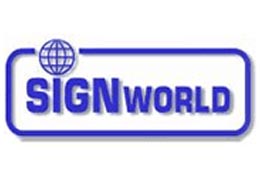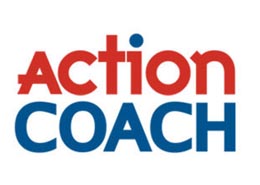We live in a different era. This era is characterized by fast paced and busy lifestyle, long commute time to work and less time available for getting acquainted with the family and for taking care of personal and family matters. The pressure is getting higher and higher and the limited time we have during the weekends and vacations for getting relaxed and rejuvenate ourselves for the upcoming week has become more and more precious. In this condition a “Honey Do” list is like a pain in the back when it comes to doing the mundane tasks of repairing a leaking facet or changing a hard to reach light bulb and maybe that’s why such a list doesn’t exist anymore in many families. Nevertheless, still things break in homes and someone needs to do the fix-up work.
For many families also age is catching up especially with the Boomers who made Do-It-Yourself so successful. Instead of getting up on a ladder to install that new ceiling fan, they’d now rather pay someone to do it. This shift has created the skyrocketing Do-It-For-Me market-and it’s huge. Over 80-million Boomers have turned 60. Add dual income families with time constraints and upwardly mobile young professionals, and you have a North American market that will spend over $150-billion annually on home repair services.
Home repair and maintenance franchises have been among the most popular franchise concepts in the U.S. in the past 10 years. These franchises are mostly designed to address a list of common problems that need to be fixed around the home. They do not usually do projects or anything that requires a general contractor’s license, but rather focus on fairly common repair tasks that still require experience and takes a lot of effort and time from the property owner to get fixed.
Here on the bottom of this page you can find our list of handyman franchise businesses. It is very important to note that as with any franchise, the secret to success is to do your research before deciding to enter into the franchise agreement. We have explained in detail six different steps that you should take when investigating a franchise. You need to talk to franchisor to discover how effective the franchise system is in helping you succeed in your business. Does the system have a great marketing program to attract customers and employees? Does it have an automated scheduling program (perhaps with a national call center) to make sure the employees are busy generating revenue for the franchisee all day every day? Make sure to contact a number of their franchisees and ask them all about the business. What’s good and what’s not? What kind of numbers are they producing, and what are their major difficult issues with the business? Finally, if they had to do it all over again, what would they change and would they get this franchise again?
As a part of ServiceMaster family of brands, Mr. Handyman is the recognized industry leader in home repairs and maintenance with more franchises units than another handyman service. The business requires minimal inventory and few employees. Mr. Handyman provides maintenance and repair services to residential and commercial markets. Prompt, safe and reliable technicians focus on completing their customers “to do” list including caulking bathtubs, carpentry work, assembling furniture, hanging pictures, installing shelves and closet organizers, putting up trim or molding, installing window treatments, baby proofing and painting. Request more information →
Handyman Matters is a high energy handyman business that cares for peoples’ homes and commercial properties. Their customers are seniors, busy working professionals, single male and female home owners, and all commercial properties. The tasks they perform are plumbing, electrical, drywall, tile, carpentry and any miscellaneous task around a property in a Time Plus Material contract with the client. The typical day in the life of an owner operator is 7:30 – 5:30 Monday through Friday. They have a strong proprietary database that integrates with an accounting package. Advantages include low overhead and quick ramp-up time. Request more information →
House Doctors can help clients with all home repair and improvement needs. There’s no need to call several craftsmen to complete various projects around the house. With House Doctors, one call does it all! House Doctors provides handyman services such as Drywall repairs and installation, flooring installation and repair, bathroom repairs and remodeling, kitchen remodeling and repairs, door installation and repair, window repair, ceiling fan installation, painting, independent living and aging-in-place modifications, home energy efficiency upgrades, deck repair and installation, and many other home interior and exterior remodeling and repair services. Request more information →
Handyman Connection is a home repair company that specializes in small to medium home improvements, remodeling jobs and total home renovations. Whether it’s paint to plaster, drywall to decks, fences to faucets, our handymen get the things you want done. Handyman Connection works with a number of affiliates such as CertaPro Painters, Floors Covering International, and California Closets to ensure only the highest quality for your home improvement projects. Request more information →
Handy Pro is unlike any other program in the country. The Other side of Senior care, providing Home modifications for the dissabled. At Handy Pro, the difference is that they are committed to providing franchisees with the highest level of personalized service and systems. You will always have the benefit of dealing directly with the people who have made a success in the handyman business. Handy Pro’s concept is a comprehensive management system which provides ongoing training, support and guidance to all franchisees. The staff will work directly with you to insure your business will be up and running successfully within the first 60 day’s of training. Request more information →
Please call us at (949) 228-6639 or simply fill out the form on this page to get more information or schedule your free consultation for buying a handyman franchise.









